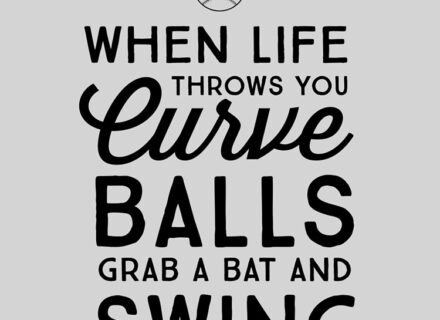There’s a great blog post that’s often cited by start-up CEOs and VCs titled ‘Making Yourself a CEO’. It’s by Ben Horowitz, co-founder of VC firm Andreesen Horowitz. I’m a big fan of Ben’s writing, and especially his books. ‘The Hard Thing About Hard Things’ being one my top picks among important business books of our time.
I love the messages in ‘Making Yourself a CEO’, and I think many, or maybe all of them, apply to managers of any level or title. The first of which is the notion of managers being born or made.
Born or Made
We often hear the phrase ‘born leader’, and I do think, to some degree, some leadership traits come more naturally to some than others. For this post, however, I want to delineate between ‘leader’ and ‘manager’. I think of management as the more technical side of the management/leadership equation. Leadership is more about hearts and minds.
Being a great manager is not something anyone is born knowing how to do. It’s hard, and it takes time and cultivation of many different skills to really master. And, if total mastery is possible, I don’t think many people reach that level.
Being Right vs. Making the Right Calls
As a manager, it’s your job to be right all the time, isn’t it? Nope. It is your job, though, to make sure the right calls are being made as much as possible. To use a sports analogy, you should have a pretty damn good batting average when it comes to decision making. Not all ideas need to come from the manager. The right ideas and decisions need to be identified and acted upon by the manager.
You Won’t Always be Liked, and That’s Okay
This paragraph from Ben’s post says it best. Just replace ‘CEO’ with ‘Manager’:
“Being CEO requires lots of unnatural motion. From an anthropological standpoint, it is natural to do things that make people like you. It enhances your chances for survival. Yet to be a good CEO, in order to be liked in the long run, you must do many things that will upset people in the short run. Unnatural things.”
In other words, in order to be a good manager you’re going to have to make tough decisions that some, or many people will not like. That’s part of the gig. Get used to being a bit uncomfortable but don’t let that impact your confidence when making the tough calls. They have to be made, and you chose the job.
Feedback and Recognition
The CEO blog talks about the idea of a Shit Sandwich as a feedback framework. I’ve used it. Most of us have. Regardless of the approach to providing employee feedback, it should be done early and often. We never want to crush someone’s soul when we have to give critiques, so give feedback in a kind, empathetic, compassionate way, but be direct.
Another powerful tool in the manager’s toolbelt is the simple act of recognition. This spans from simple ‘thank you’s’ to bigger things like awards, compensation enhancements, trips, etc. There are a million ways to recognize the people who are doing great work daily. It’s up to the manager to make sure it’s getting done. I plug David Novak’s book ‘Taking People With You’ every chance I get. It’s one of the best to highlight the power of recognition in management.
Head, Heart, & Hands
I’m a fan of frameworks. They help me keep ideas and concepts organized in my mind. Related to management is one I refer to as ‘Head, Heart, & Hands’ for managing performance of people and teams. You can read more about it here. In essence, it talks about three filters you can use to assess someone’s performance in their work. Do they have the know-how to do it (head)? Are they passionate and have a drive to do the work (Heart)? And do they have the skills needed to execute (Hands)? Manager’s should keep these filters in mind and assess across all three. If someone scores high on ‘head’ and ‘heart’, but low on ‘hands’, maybe they just need some training or coaching to better execute. The strength of each filter will vary.
On The Bus or Off The Bus
Quite possibly the number one most important role of a manager- Hiring and Firing. Getting the right people in the right seats on the bus, keeping them there, or parting ways if things don’t work out. Some of my biggest mistakes in management were hiring too fast and firing too slow. Too often manager’s are pressured to fill a seat in order to meet or maintain certain staffing levels. This is especially true for more entry level roles. That approach just results in high turnover and a shit load of training hours wasted. Hire slowly, or maybe slower than you’re used to, and get the right people with the right amount of head, heart, and hands for the job.
The complete opposite is true for firing. It’s almost always the case that we fire underperformers too slowly. There’s an exception to every rule, including this one, but it’s rare. When you have all the signs someone is not going to work out, don’t give it more time. You’re likely just delaying the inevitable. More manager’s need to see this problem from both sides as well- The employee side and the company side. If you’re coddling an employee that will not be successful in a particular role, you’re delaying their growth and success in something else.
Making a Manager
There are many dimensions to the craft of management and it takes a lot of hard work and practice to get good at them. Resources like Values Based Management are helpful to learn more about specific frameworks or strategies for the practice of management. https://www.valuebasedmanagement.net/
If you manage people now or are thinking about a career in management, look for a mentor or mentors that have done these things before you. It’ll speed up your learning curve.



